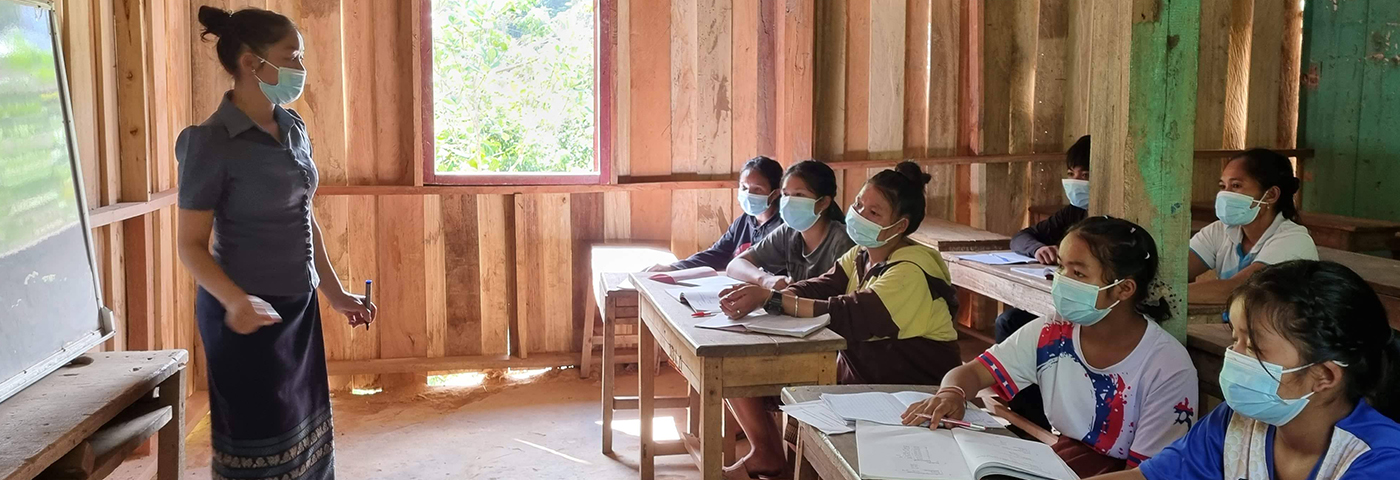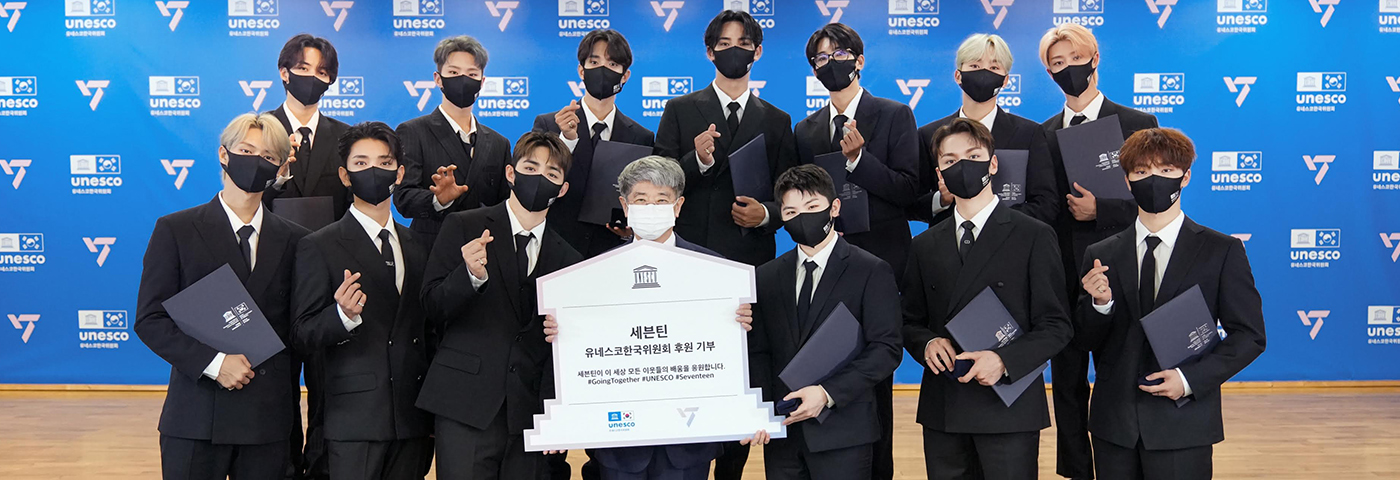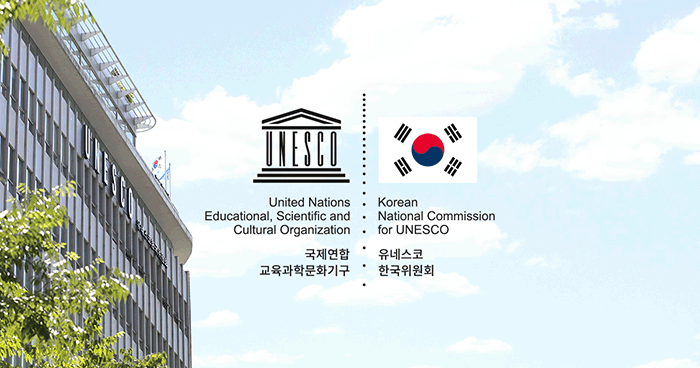Development Cooperation
The ‘Incheon Declaration and SDG4 – Education 2030 Framework for Action’, adopted at the World Education Forum held in Incheon in May 2015 as a framework for implementation of Sustainable Development Goal 4, proposes the Community Learning Centre (CLC) as a multi-purpose/non-formal learning space to provide inclusive and equitable quality education (SDG4 Target 4.a). The KNCU implements a number of development cooperation projects that focus on improving access to quality education, particularly non-formal education through the use of CLCs.
- Bridge Programme
-
 The Bridge Programme is a KNCU education development cooperation project that contributes to achieving UN SDG4 (concerning the provision of ‘quality education’) by promoting accessibility to education for the underprivileged in developing countries. The Bridge Programme was launched in 2010 and involves collaboration with various partners, including laureates of UNESCO King Sejong Literacy Prize and the National Commissions for UNESCO in the programme’s partner countries, for the development of education that leaves no one behind. In addition to providing support for educational facilities, materials and activities, KNCU also holds workshops to strengthen the capacity of partner institutions and stakeholders who are carrying out the Bridge projects in each partner country, to ensure that the projects are as effective and sustainable as possible.
The Bridge Programme is a KNCU education development cooperation project that contributes to achieving UN SDG4 (concerning the provision of ‘quality education’) by promoting accessibility to education for the underprivileged in developing countries. The Bridge Programme was launched in 2010 and involves collaboration with various partners, including laureates of UNESCO King Sejong Literacy Prize and the National Commissions for UNESCO in the programme’s partner countries, for the development of education that leaves no one behind. In addition to providing support for educational facilities, materials and activities, KNCU also holds workshops to strengthen the capacity of partner institutions and stakeholders who are carrying out the Bridge projects in each partner country, to ensure that the projects are as effective and sustainable as possible.
-
Bridge Programme Phase 2
The Bridge Programme Phase 2 is a five-year project that was newly launched in 2020. The programme builds on the achievements and experiences of the Bridge Africa and Asia Programmes. As with the original programmes, Phase 2 of the programme supports non-formal education for educationally marginalized groups in low-income countries, in order to contribute to achieving SDG 4. In the unprecedented circumstances resulting from the outbreak of COVID-19, the programme also provides health and hygiene education and products to the partner countries to ensure that educational opportunities can continue during the pandemic. The KNCU cooperates closely with the National Commissions for UNESCO and Ministries of Education in the partner countries to ensure that the programme supports the education policies of the partner countries and to increase the impacts of the Programme at the national level. ※ Partner Countries: Timor-Leste, Laos, Bhutan, Malawi
-
Bridge Sejong Programme
The Bridge Sejong Programme is a literacy/lifelong learning-focused programme that aims to further the aims of the UNESCO King Sejong Literacy Prize, a UNESCO award sponsored by the South Korean government, and support sustainability of the laureates’ activities. Since 2021, the KNCU has cooperated with public institutions and NGOs that have previously won the Prize to support their various programmes that aim to contribute to the eradication of illiteracy. The KNCU also holds an international online seminar on adult and lifelong learning in partnership with relevant organizations and experts from South Korea and elsewhere. ※ Partner Countries as of 2022 : Jordan, Sri Lanka, Pakistan, Uruguay
-
(Closed)Bridge Africa Programme
The Bridge Africa Programme was implemented from 2010 to 2020 in 6 sub-Saharan African countries (Botswana, Eswatini, Lesotho, Malawi, Rwanda and Zambia) with low adult literacy rates. Based on cooperation with the National Commissions for UNESCO in the partner countries, the programme provided various types of education, including literacy education, early childhood education, and vocational education and training, through Community Learning Centers (CLCs). The programme further helped to improve accessibility to education and quality of education for the underprivileged by providing teacher training and distributing textbooks.
The Bridge Asia Programme was launched in 2012 and conducted in the Southern Asian region (Bhutan, India, Myanmar, Nepal, Pakistan, and Sri Lanka) until 2020, with the aim of promoting the right to education for the most disadvantaged groups, including women and girls. The programme has created an enabling environment for learning, by operating community learning centers in areas where there are no schools, providing basic and functional literacy activities, life-skills education, and technical and vocational education and training in a non-formal setting, as well as nurturing educators. -
Bridge Asia Programme
The Bridge Asia Programme was launched in 2012 and has been conducted in 12 Asian countries with low literacy rates,with the aim of promoting the right to education for the most disadvantaged groups, including women and girls.The programme has created an enabling environment for learning, by operating community learning centers in areas where there are no schools, providing basic and functional literacy activities, life-skills education, and technical and vocational education and training in a non-formal setting, as well as nurturing educators.
관련자료
-
Bridge Programme Phase 2
- International Development Cooperation
-
 The KNCU develops systems to help domestic and international partners in the civic sector, the government, and the private sector participate in international development cooperation projects, including the Bridge Programme.
The KNCU develops systems to help domestic and international partners in the civic sector, the government, and the private sector participate in international development cooperation projects, including the Bridge Programme.
-
Support for and Participation in International Development Cooperation
The KNCU offers opportunities to support its international development cooperation projects aimed at achieving the vision of ‘Education leaving no one behind, and peace for all.’ It develops and operates programmes tailored to needs of its partners to help partners sponsor, participate in and cooperate with KNCU’s development cooperation projects. A range of programmes allows citizens, schools, and business corporations all to contribute to UNESCO’s global activities.
-
Management of Donations
The KNCU runs a fund raising programme to help support its international development cooperation projects. All funds raised are managed in accordance with strict principles, and the KNCU uses a Membership Relationship Management solution and Enterprise Resource Planning system so that it can manage donations effectively and answer requests from donors efficiently. Additionally, in February every year, an external audit on donations is conducted, and KNCU reports the results to the Ministry of the Interior and Safety.
-
Research on International Development Cooperation & Project Development
The KNCU also works with experts in UNESCO affairs and relevant institutions in South Korea and overseas to develop new projects for international development cooperation. To that end, an in-house forum named ‘Bridge Insight’ is held regularly to share new information and ideas among staff members, to discuss pending issues of relevance and to explore ways to develop innovative international development cooperation projects in areas relevant to UNESCO’s mandate.
관련자료
-
Support for and Participation in International Development Cooperation



.png)



